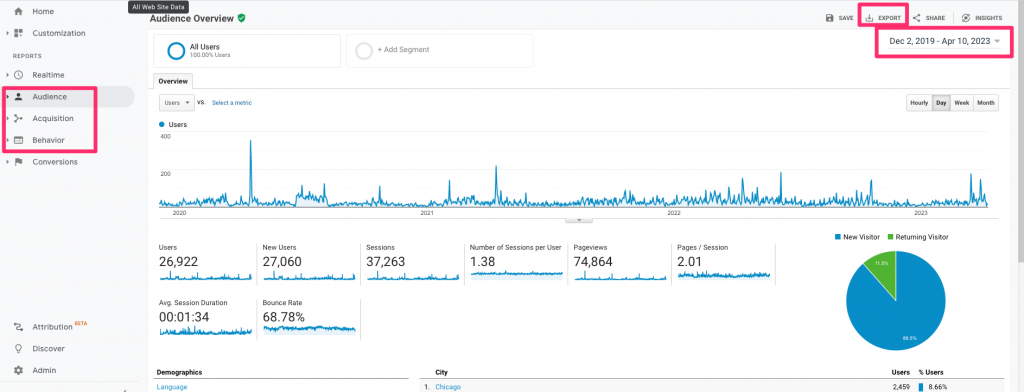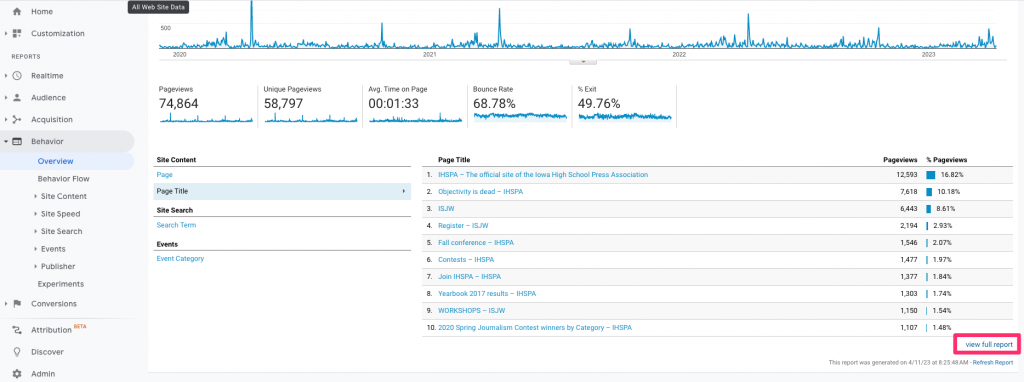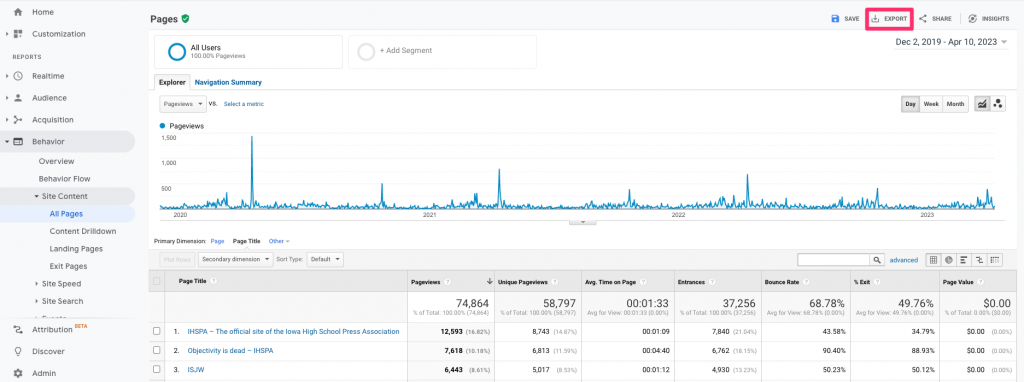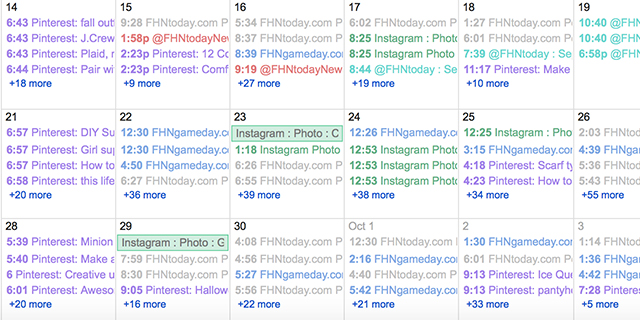Google Analytics UA Data Collection and what the changes mean for your website

It’s the end of Google’s Universal Analytics as we know it, and I feel fine.
If you have logged on to Google Analytics in the past six months, you’ve likely noticed a message at the top of the screen with a yellow background, informing you, “On July 1, 2023, this property will stop processing data. Starting in March 2023, for continued website measurement, you should create a new Google Analytics 4 (GA4) property, or one will be created for you based on your original property and reusing existing site tags.”
This switch to GA4 from Universal Analytics (UA) is coming from Google, and there is no option to opt out of the change. Like the message says, on July 1, 2023 your old analytics code will stop processing data.
If your website is hosted by SNO, they have you covered. They have created a GA4 property for your site, and have installed and activated a new SNO Analytics plugin to display that data on your site’s dashboard. For more information on what SNO did to manage this conversion you can read their newsletter here.
If you manage your own analytics you will need to create your own GA4 property and begin gathering data. There are a ton of different YouTube videos and support articles on this topic – here is the Google support article.
Staffs that only look at analytics for the school year will be fine this year by referring only to their UA data. Beginning next school year they will be able to refer only to their GA4 data to review traffic from the 2023-2024 school year. If you rely only on the data from the SNO Analytics tab on your site’s dashboard you will need to get access to your UA data on analytics.google.com to see data from prior to mid-February, when SNO began fetching GA4 data. If you did not previously have access to UA data on Google Analytics send SNO a support ticket and they can help you get access to that data on the Google Console.
A few things to note: GA4 will only store data for 14 months, so staffs that only get their analytics through GA4 may want to export their school year data if they plan to reference it in the future. However, the new SNO analytics plugin stores all historical data. As long as your site remains live with SNO, you will have access to all data beginning in mid-February 2023.
Speaking of referencing data in the future, on July 1, 2023, when UA stops processing, you will have only six months to access that data. Those who wish to maintain those records for any purpose should export their data and save the files in Google Drive, Office 365, on a local network, or printing pages to file in a binder if you’re old school.
Again, if you are a SNO Site and never accessed UA data on the Google Console, send in a support ticket and SNO will be able to get you access to that data for export.

To export the data follow these steps:
- Log in to analytics.google.com and, if there are multiple sites available on the dropdown labeled All Web Site Data, select the code that has UA in front of the number.
- Go to the Audience, Acquisition, or Behavior tab, select overview to see what data can be obtained in each of those categories.
- Adjust the date range from the day your site began processing data through today.
- Select the metric you are interested in having the data for (e.g. which page title generated the most traffic – found in the behavior category.)
- Click the view full report button.
- Scroll down and increase the number of rows visible on the screen until all data is shown.
- Click the export button, near the top of the screen, to download that report in whatever file type works for your staff.






